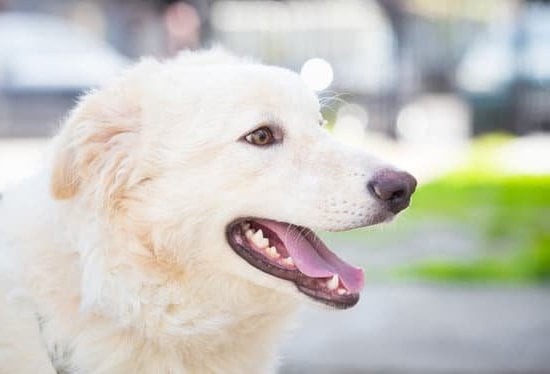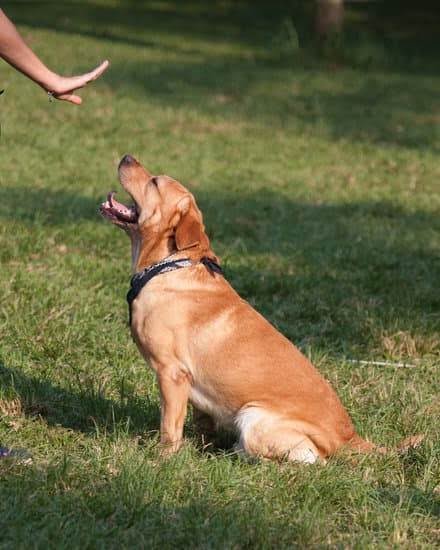Police and military dogs play a crucial role in law enforcement and defense, assisting officers and soldiers in various operations. These highly trained canines provide invaluable support in detecting explosives, narcotics, missing persons, and apprehending suspects. However, the effectiveness of these working dogs relies heavily on the specialized training they receive.
Training police and military dogs requires a unique set of skills and expertise to ensure they perform their duties effectively and safely. The individuals responsible for this specialized training are professional dog trainers who possess the knowledge, experience, and dedication needed to mold these canines into reliable partners for law enforcement officers and military personnel.
These trainers undergo rigorous education and hands-on experience to prepare them for the challenging task of working with police and military dogs. They are responsible for teaching essential skills such as scent detection, obedience, agility, search techniques, apprehension procedures, and more. By developing strong bonds with their canine charges, these trainers create an environment of trust and teamwork that is essential for successful operations.
The Specialized Training Needed for Police and Military Dogs
Police and military dogs play a crucial role in law enforcement and defense operations. These highly trained canines are essential in detecting drugs, apprehending suspects, searching for explosives, and even locating missing persons. To fulfill these important tasks effectively, police and military dogs undergo specialized training that equips them with the necessary skills to perform their duties efficiently.
The training required for police and military dogs is extensive and demanding. It includes obedience training, agility training, scent detection training, patrol work training, and specialized task-specific training. This comprehensive approach ensures that the dogs are prepared to handle a wide range of situations they may encounter in the field. The goal is to develop well-rounded canines who can respond quickly and effectively to various commands from their handlers.
- Obedience Training
- Agility Training
- Scent Detection Training
- Patrol Work Training
- Task-Specific Training
The individuals responsible for providing this specialized training are professional trainers who have expertise in working with police and military dogs. These trainers often have backgrounds in canine behavior, animal psychology, law enforcement, or military service. They possess the knowledge and skills needed to teach these intelligent animals complex tasks while maintaining a strong bond between handler and canine partner.
- Backgrounds in Canine Behavior
- Experience in Law Enforcement or Military Service
- Expertise in Animal Psychology
- Skills in Teaching Complex Tasks
Who Trains Police and Military Dogs
The responsibility of training police and military dogs falls on the shoulders of specialized professionals who possess the knowledge, skills, and experience necessary to prepare these canines for their vital roles in law enforcement and defense. These trainers play a crucial role in shaping the behavior, abilities, and overall performance of these working dogs, ensuring they are well-equipped to support their human counterparts effectively in various operational scenarios.
Those who train police and military dogs are typically highly experienced individuals with backgrounds in fields such as animal behavior, obedience training, and law enforcement or military service. They must have a deep understanding of canine psychology, learning principles, and specific task requirements related to detection work, obedience commands, apprehension techniques, and search-and-rescue operations.
Additionally, these trainers often have prior experience working with different breeds of dogs to tailor their training methods to suit the unique characteristics of each individual canine recruit.
In addition to technical expertise in dog training methods and techniques, those who train police and military dogs must also possess strong communication skills to effectively convey instructions to both the dogs they are training and their human handlers. Building a successful partnership between the dog handler team is instrumental in achieving operational success out in the field.
By fostering trust, respect, and clear communication between all parties involved, these trainers help ensure that both the canines and their handlers work together seamlessly towards common goals.
| Key Responsibilities | Qualifications |
|---|---|
| Designing customized training programs for specific tasks | Background in animal behavior or law enforcement |
| Evaluating progress and adjusting training methods accordingly | Experience working with different breeds of dogs |
| Building strong partnerships between canine teams | Strong communication skills |
Qualifications and Requirements to Become a Police and Military Dog Trainer
Becoming a trainer for police and military dogs is a highly specialized and demanding career path that requires a unique set of qualifications and skills. Individuals who aspire to train these elite canine units must undergo rigorous training themselves in order to effectively teach, handle, and develop these valuable working dogs. Here are some of the qualifications and requirements needed to become a successful police and military dog trainer:
- Educational Background: Most trainers in this field have a background in animal behavior, psychology, or a related field. A degree or certification in animal training, behavior modification, or similar disciplines is often required.
- Experience with Working Dogs: Prior experience working with or handling working dogs such as search and rescue dogs, detection dogs, or personal protection dogs is crucial for aspiring trainers. This hands-on experience helps develop the necessary skills to understand canine behavior and effectively communicate with these highly-trained animals.
- Certifications and Licenses: Many organizations require trainers to hold certifications from recognized training programs. These certifications demonstrate proficiency in canine handling, training techniques, and obedience commands. Additionally, some states may require specific licensing for individuals who train police or military dogs.
In addition to the educational and experiential requirements, potential trainers must also possess certain personal qualities to excel in this role. Patience, dedication, physical fitness, and a deep understanding of canine behavior are all essential traits for success in training police and military dogs. By meeting these qualifications and requirements, individuals can embark on a rewarding career as trainers for these vital law enforcement and defense canines.
- Educational Background:
- Experience with Working Dogs:
- Certifications and Licenses:
Training Methods and Techniques Used for Police and Military Dogs
Police and military dogs undergo rigorous training to ensure they are equipped with the necessary skills to assist law enforcement and defense teams effectively. The methods and techniques used in training these canines are crucial in developing their abilities and enhancing their performance in various scenarios. From obedience training to specialized tasks such as tracking, apprehension, and detection, there are specific approaches employed to prepare these highly trained dogs for their important roles.
Obedience Training
One of the fundamental aspects of training police and military dogs is obedience training. This foundational skill is essential for ensuring that these canines respond promptly and accurately to their handler’s commands. Through positive reinforcement techniques such as rewards and praise, trainers help instill discipline and reliability in the dogs’ behavior. Obedience training also emphasizes socialization, teaching the dogs how to interact appropriately with different people, environments, and situations they may encounter during their duties.
Specialized Task Training
In addition to obedience training, police and military dogs receive specialized task training based on their intended roles. For example, detection dogs are trained to sniff out explosives, narcotics, or other substances using their keen sense of smell. Tracking dogs learn how to follow a scent trail left by a person or object, aiding in search-and-rescue operations or locating suspects.
Apprehension dogs are taught controlled aggression techniques for subduing individuals when necessary. Each specialized task requires specific training methods tailored to develop the dog’s natural instincts and abilities towards a particular goal.
The Bond Between Handlers and Their Canine Partners
The Unbreakable Connection
The bond between handlers and their canine partners in law enforcement and defense is an essential aspect of successful operations. Police and military dogs rely on their handlers for guidance, care, and direction in high-stress situations.
Handlers, in turn, develop a deep sense of trust and understanding with their canine companions, creating an unbreakable connection that is built on mutual respect and teamwork. This bond goes beyond just professional partnership; it becomes a true partnership based on loyalty and dedication.
Communication and Trust
Effective communication between handlers and their canine partners is crucial for carrying out missions seamlessly. Handlers learn to read their dog’s body language, cues, and signals to anticipate their actions and reactions in various scenarios. This level of trust allows for clear communication even in intense situations where split-second decisions can make a difference. Canine partners also rely on their handlers for cues and directions, establishing a dynamic relationship built on cooperation and understanding.
Emotional Support
The bond between handlers and their canine partners also extends to emotional support. In high-pressure environments, such as search-and-rescue missions or combat zones, handlers often find solace in the companionship of their loyal canines. The unconditional love and devotion shown by these highly trained animals provide comfort to handlers during stressful times. This emotional connection strengthens the partnership between handlers and their canine partners, emphasizing the unique bond that exists between them in the line of duty.
Real-Life Examples of Successful Police and Military Dog Training Programs
In the world of law enforcement and defense, police and military dogs play a crucial role in keeping communities safe from various threats. These highly trained canines are invaluable assets to their respective agencies, as they possess the ability to detect explosives, drugs, and even apprehend suspects when necessary. The success of these operations heavily relies on the rigorous training programs that these dogs undergo, preparing them for real-life scenarios where their skills are put to the test.
One example of a successful police dog training program is the K9 unit of a metropolitan police department. This unit consists of specially trained German Shepherds who work alongside their handlers in tracking down suspects, searching buildings for hidden individuals, and providing backup during high-risk situations. These K9s undergo intensive obedience training, scent detection exercises, agility drills, and scenario-based simulations to ensure they are ready for any situation that may arise while on duty.
Similarly, military working dog (MWD) training programs have proven to be instrumental in enhancing national security and defense efforts around the world. MWDs are trained not only in detection work but also in patrol duties, such as scouting for enemy combatants or conducting search and rescue missions. The successful completion of these programs is a testament to the dedication and expertise of the trainers who specialize in preparing these canines for their critical roles in protecting military personnel and assets.
The Future of Training for Police and Military Dogs
The field of training for police and military dogs has seen significant advancements and innovations in recent years, enhancing the capabilities of these loyal canine partners in law enforcement and defense operations. One key area of development is the use of technology to improve training methods and outcomes. New tools such as virtual reality simulations and wearable devices have been incorporated into training programs to provide more realistic scenarios and monitor the performance of dogs more efficiently.
In addition to technological advancements, there has been a growing emphasis on understanding canine behavior and cognition to tailor training programs accordingly. Research in areas such as behavioral science and canine communication has led to the implementation of more effective training techniques that take into account the individual differences among police and military dogs. Trainers are now able to leverage this knowledge to optimize the learning experience for each dog, ultimately leading to better results in real-life situations.
Furthermore, collaborations between experts in various fields, including animal behaviorists, veterinarians, and experienced handlers, have contributed to a more holistic approach to training police and military dogs. By combining insights from different disciplines, trainers can develop comprehensive training programs that address not only the physical abilities but also the mental well-being of these working dogs.
This multi-faceted approach ensures that police and military dogs are not only skilled in their duties but also healthy and happy in their roles as valuable members of law enforcement and defense teams.
| Advancements | Innovations |
|---|---|
| Use of technology like virtual reality simulations | Integration of wearable devices for monitoring |
| Emphasis on understanding canine behavior and cognition | Implementing tailored training techniques |
| Collaboration between experts from various fields | Holistic approach to training programs |
Conclusion
In conclusion, the role of professional trainers for police and military dogs is critical in ensuring the safety and security of communities. These trained canines play a vital role in law enforcement and defense operations, often putting themselves in harm’s way to protect others. Without the specialized training provided by dedicated professionals, these dogs would not be able to effectively carry out their duties.
It is the trainers who dedicate their time and expertise to mold these canines into efficient working partners for law enforcement agencies and military units. The qualifications and requirements to become a police and military dog trainer are rigorous, reflecting the level of skill and knowledge needed for this demanding profession. With proper training methods and techniques, these trainers are able to bring out the best in their canine companions, preparing them for a variety of tasks in challenging environments.
Looking ahead, advancements and innovations in training methods continue to improve the capabilities of police and military dogs. The bond between handlers and their canine partners remains as strong as ever, further enhancing their effectiveness in keeping communities safe. As we recognize the essential role that professional trainers play in this field, we appreciate their dedication to ensuring that these remarkable animals can continue to serve with excellence.
Frequently Asked Questions
Who Trains Military Dogs?
Military dogs are trained by specialized trainers who have experience working with dogs in various tactical situations. These trainers often have a background in law enforcement or the military, which gives them a unique perspective on how to train these highly skilled animals.
How Are Police and Military Dogs Trained?
Police and military dogs undergo rigorous training programs that are specifically designed to prepare them for the challenges of their roles. Training includes obedience, agility, scent detection, and apprehension techniques. Trainers use positive reinforcement methods to build trust and ensure the dogs are reliable in high-pressure situations.
What Is a Military Dog Trainer Called?
A military dog trainer is typically called a “military working dog trainer” or simply a “dog trainer.” These professionals play a crucial role in preparing dogs for service in the military, law enforcement, or other security organizations. Their expertise in canine behavior and training methods is essential for ensuring that these highly trained animals perform their duties effectively.

Welcome to the blog! I am a professional dog trainer and have been working with dogs for many years. In this blog, I will be discussing various topics related to dog training, including tips, tricks, and advice. I hope you find this information helpful and informative. Thanks for reading!





